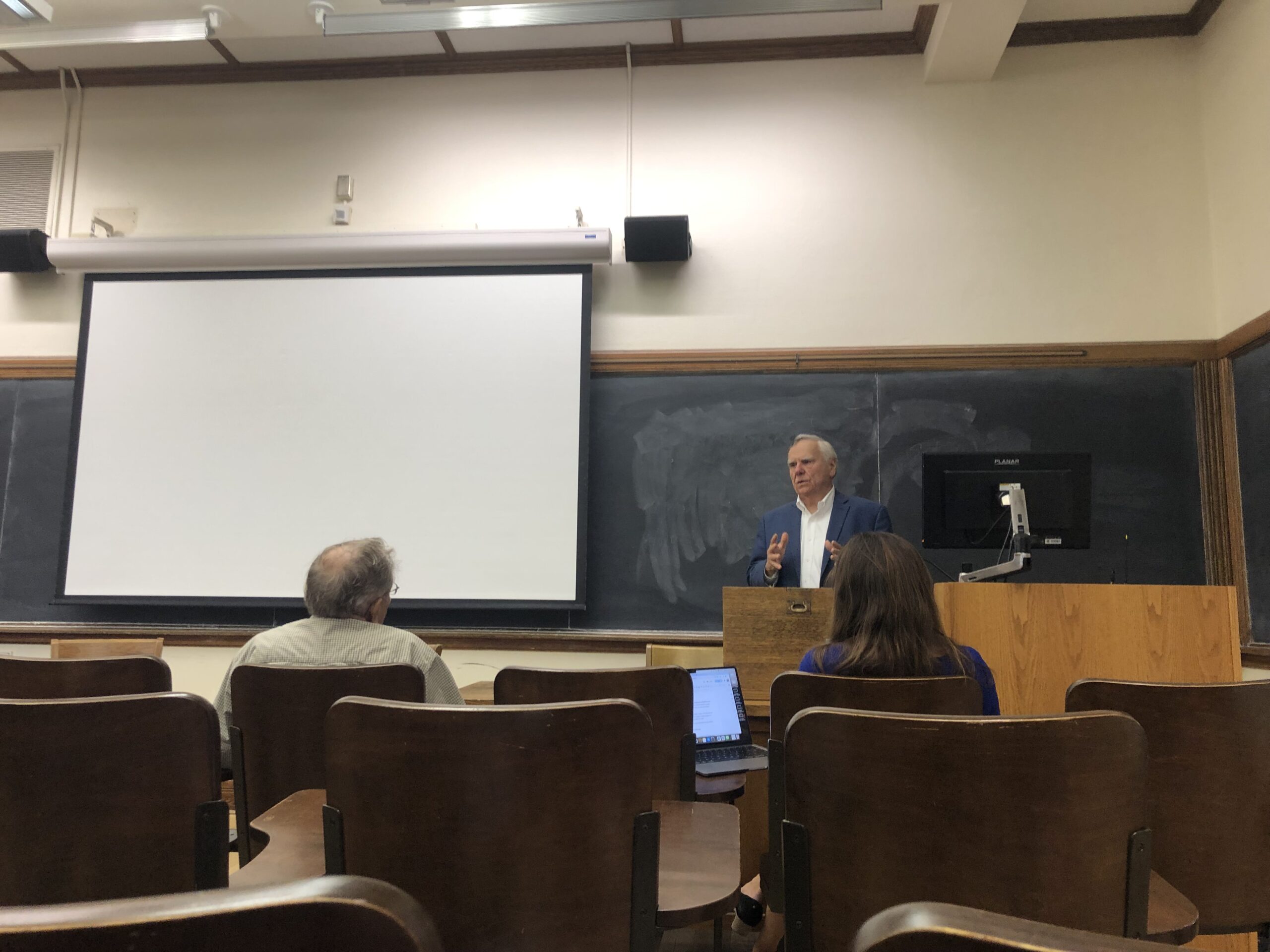Ukraine House speaker criticizes Western response to Russian invasion
Victor Rud, who has spoken on behalf of Ukraine to NATO and the UN, criticized Western inaction in Ukraine.

Sullivan Ho, Contributing Photographer
Yale’s Ukraine House hosted Victor Rud, board member of the Ukrainian American Bar Association, on Tuesday to discuss the United States’ stance on the war in Ukraine.
Speaking to a room filled with a mixture of students and local residents, Rud, who has also spoken about Ukraine to the North Atlantic Treaty Organization, or NATO, and the United Nations, challenged the United States’ current posture towards Ukraine. He argued that the ongoing war is important for Ukraine’s domestic security but is also the “pivot point for Russia’s total warfare against the West.”
“Do you think the U.S. would have tolerated a Russian invasion and annexation of Sicily for 12 years? It just wouldn’t happen. But it did happen with Ukraine — why?” Rud asked. “It’s because Ukraine is still embedded in our synapses as still a historical part of Russia, and, therefore, it’s not a war.”
Rud described the West’s restrained approach toward Ukraine as unprecedented, citing previous multilateral NATO action in Afghanistan, the former Yugoslavia and Kuwait. Rud characterized Russia’s war on Ukraine as a genocide — an allegation Russia has rejected.
A few hours before Rud’s talk, Trump announced on Truth Social that he believed Ukraine “is in a position to fight and WIN” all of its now-occupied territory, representing a shift in U.S. attitude towards the European conflict.
Rud’s argument about Western inaction stemmed from a theory that Westerners still view Ukraine as a historical part of Russia.
This idea, Rud asserted, can be traced back to the founding of Russian Studies departments after World War I. Rud pointed toward Yale, Harvard, Oxford and Cambridge as examples of universities where primarily Russian academics shaped the discipline in a manner favorable to Russian imperialism.
Olena Lennon, an adjunct professor at the University of New Haven, moderated the evening’s discussion and told Rud she thought he was “absolutely correct” with his theory, explaining that “the term we use at Yale in particular is ‘colonized.’ They colonized Ukrainian history to the point where they captured the West’s imagination.”
Rud cited a recent Yale study on Russia’s practice of kidnapping children as evidence of Russia’s wrongdoing.
Ukrainian students at the event shared Rud’s opinion that the lack of foreign intervention in the war is insufficient. Mariia Hodovanets ’28, director of events for Ukraine House, described the mismatch between the everyday reality of her Ukrainian homeland compared with the fatigue of her American peers.
Vladyslav Yatskiv ’28 agreed with Rud and pointed to a more complex narrative about his country of origin.
“There’s more to Ukraine than just war,” he said. “There’s a rich culture we also need to fight to keep.”
He said he and other members of the Ukraine House wear traditional Ukrainian clothing to meetings to keep cultural memory alive.
“The combination of events just in the past week make this conversation so much more urgent,” Lennon said, citing Russia’s breach of NATO airspace on Friday and the ongoing UN General Assembly in New York. “We live in a moment when previous norms and rules are obsolete.”
A June 2025 study suggested that close to 400,000 Ukrainian troops had been killed or wounded since Russia’s 2022 invasion of Ukraine.







